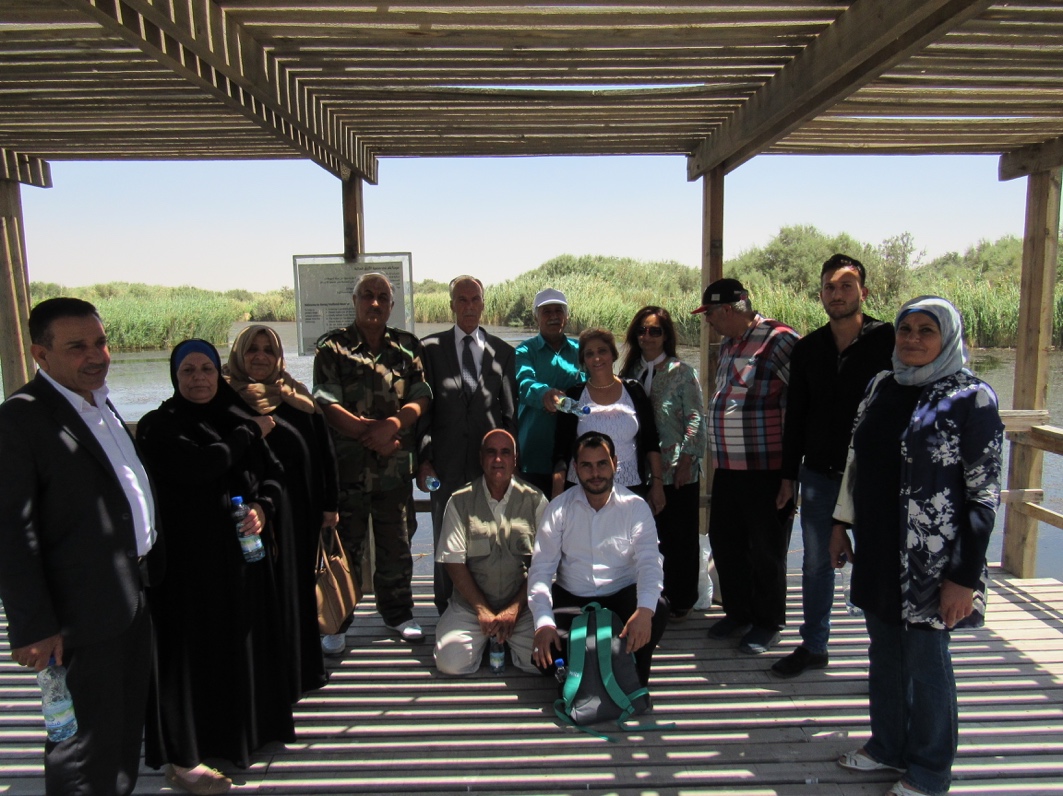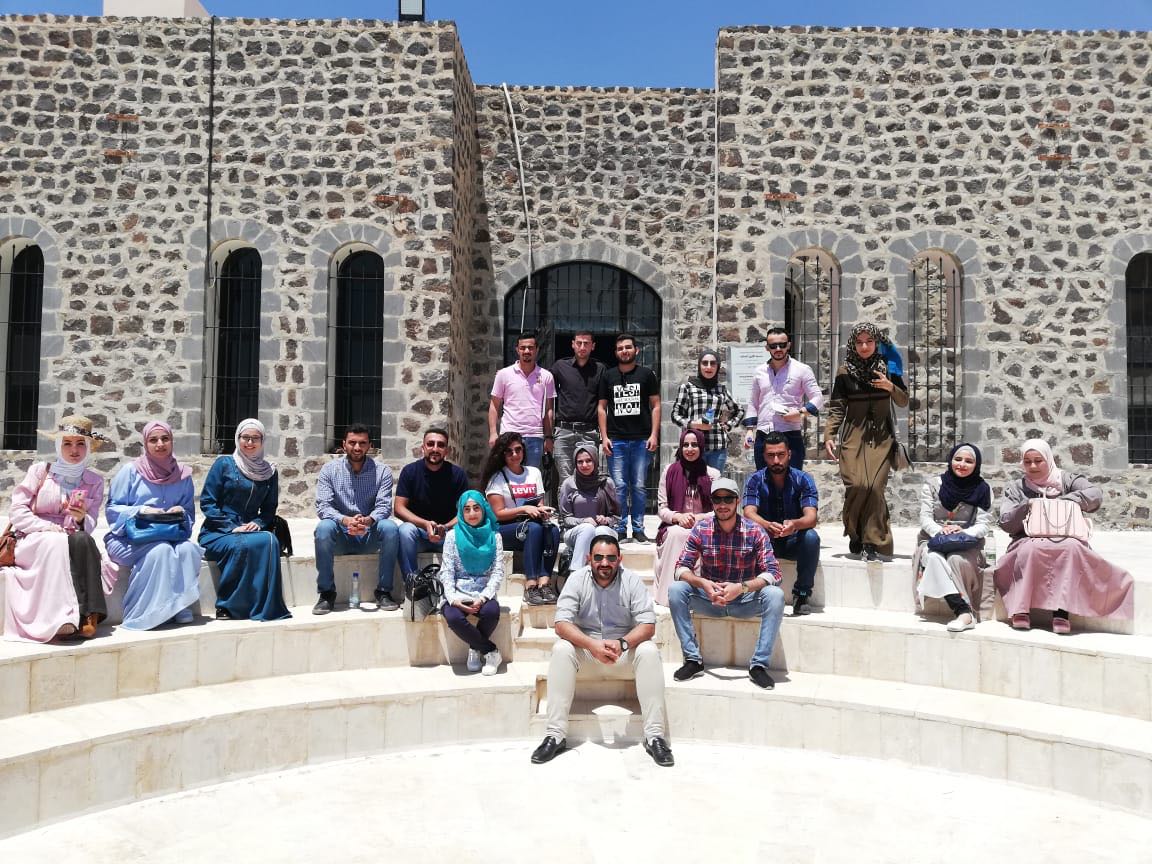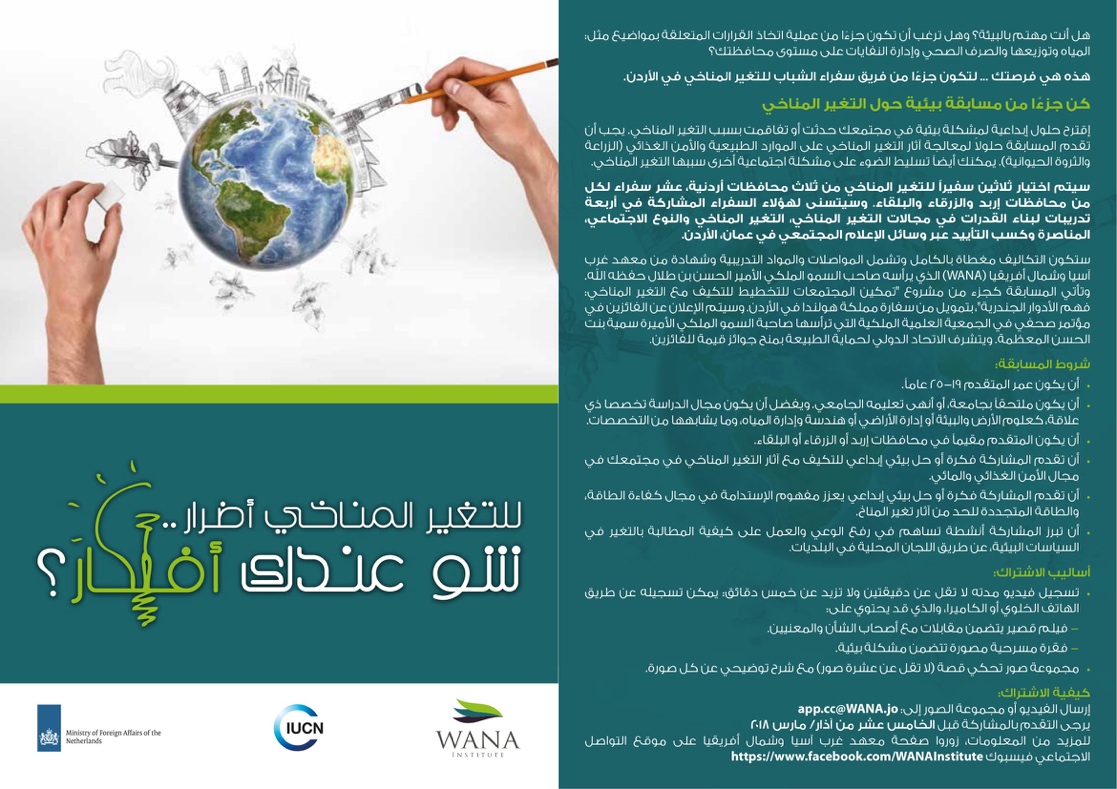Enabling Communities for Climate Change Adaptation Planning :Understanding Gender Roles. Mainly Targeting SDG 5 and 13.
Description
The project mainly links SDG 5 and 13, in which it aims to empower local communities through Community based Organizations and youth ambassadors in three different governorates in Jordan to design local climate change adaptation plans. It will also provide a platform for local communities to<br />
share these climate change adaptation plans with relevant ministries and municipal councils. The effects of climate change on gender roles in Jordan is investigated and mainstreamed within these adaptation plans. The project covered a period of two years (2017-2019) , in which it covered mapping of beneficial stakeholders (Environmental CBOs, and youth from Universities) in Jordan (first 6 months), second phase of consultation workshops identified selected youth and CBOs through a selection criteria(Application for CBOs, and competition for youth) ( 1 month), Launched the capacity building program with 4 training modules (4 months), SWOT analysis that identified the local setting of climate change challenges ,action, and adaptation plan building (1 Year).
Empowering civil society and youth with the knowledge, skills to develop effective strategies for climate change adaptation and water management. CBO representatives demonstrated increased knowledge about climate change and the application of climate change adaptation strategies. To distinguish between Climate change adaptation and mitigation, CBOs and youth were exposed to extensive training module that linked climate change to their local scene, while taking into previous and ongoing account international efforts. Youth ambassadors have increased awareness and normative commitment regarding climate change and water insecurity in Jordan and the imperative of adaptation measure. In order to maintain commitment from the youth, they were asked as part of the competition to submit a creative idea on how to adapt to climate change in their local area, for example though using an innovative technology in agriculture, introducing recycling or other creative suggestions. These ideas will be incorporated into the adaptation plan that supports originality. Policymakers and local authorities take adaptation strategy recommendations into account in decision making and demonstrate strengthened normative commitment to the importance of climate change and water security. To integrate policy makers from the beginning of the project, constant media coverage was present, and press releases. The program will launch the adaptation plans in a conference at the end of the program where stakeholders will be present, also a launching of an animated video in June 2019, in which it details how climate change makes gender inequity worse in Jordan. It will feature qualitative and quantitative interpretations on how climate change affects women and men in Jordan as part of their daily life (water, energy and food security).
The project helped in augmenting the capacity of civil society and youth in three climate change hotbeds of Jordan. The project comprised a set of interventions which addressed a better understanding of climate change science and the ability to craft and deliver gender sensitive adaptation plans. The project, therefore empowered civil society and youth with the knowledge and skills to develop effective gender sensitive strategies for climate change adaptation in their areas. The following four components were included in the project , consultation in which mapping and studying related stakeholders in the selected areas , environmental CBOs and youth were identified according to a selection criteria, stakeholder engagement included ministries, municipalities and development agencies within the projects framework in an unusual setting (in a nature reserve) to be able to understand how climate change has affected Jordan and natural resources , Strategy-making tools. These focused on increasing the capacities of CBOs and youth through a tailored climate change capacity building module in order to create a local gender mainstreamed climate change adaptation plan which will be shared with all stakeholders specifically with ministries and municipalities. Last but not least, momentum building which focused on creating dialogue between CBOs and local governments which enabled and boosted discussions related to gender mainstreaming climate change adaptation in their areas. This also helped in placing local adaptation needs on the public agenda. Monitoring was done by working with CBOs and youth on SWOT analysis after the training modules have been done, where they worked collectively to put words into an adaptation plans that answer to local climate change challenges.
Climate change presents the single biggest threat to development, and its widespread impacts affect the most vulnerable groups specially in developing countries. In Jordan, climate change is expected to have varied impacts on its climate, natural resources and local communities. Jordan is a resource poor country facing a set of other complex developmental challenges, the average temperatures are increasing, while rainfall is declining. These trends are projected to worsen, and will not be limited to progressive changes such as heat and drought, which makes adapting to climate change ever so more urgent. As the world scales up climate change action, enhanced cooperation, capacity-building and access to financial and technical support will be needed to both adapt and mitigate to climate change. Local communities in Jordan have an array of knowledge when it comes to their needs and priorities but in most cases, they lack insight and capacity to address those needs. Currently, the weakness of the civil society and (specially women CBOs) in these governorates means that capacity to build climate change resilience and reverse development traps is limited. It is found that while stakeholders were aware that their climate was changing and that access to water was increasingly scarce, they had little insight into the practical measures they could take to promote resilience. This project has targeted and worked on several aspects to tackle those gaps and deficits. One important aspect that the project worked on is addressing the weak capacity of community- based organisations (CBOs) and local authorities in terms of forging adaptive policies. An increase has resulted in enhancement of capacities of the civil society to better integrate gender and climate change. Studies have shown that women disproportionately suffer from the impacts of climate change because of cultural norms and the distribution of roles, resources, and power, especially in developing countries. Civil Society Organizations (CSOs) -both non-government policy organizations and assistance-driven communitybased organizations- adopted evidence-based methods of combating poverty and vulnerability, and learnt technical skills to develop and implement climate change adaptation programs that focus on both women and men roles in the society. The project also presented different platforms to collaborate and develop collective strategies to augment their reach, impact and policy influence, informed by a collective understanding of key issues. The broad-reaching, comprehensive and sustained capacity building was the core of the project. One of the most important key breakthroughs will only be remedied when government and municipalities in these governorates, sees a strong and influential civil society sector which advocate for their rights and consult with all stakeholders of the society including youth. To counter these trends, Civil society and youth will be seen as a tool to augment government imperatives pertaining to poverty reduction and climate change adaptation.
Jordan Times
http://jordantimes.com/news/local/wana-searches-climate-change-youth-am…
REPUBLISHED: WANA searches for climate change youth ambassadors
MENA FN
http://menafn.com/1096485180/WANA-searches-for-climate-change-youth-amb…
Youth from remote governorates called to become climate change ambassadors
Jordan Times
http://jordantimes.com/news/local/youth-remote-governorates-called-beco…
Climate change ambassadors develop environmental solutions for Irbid, Zarqa and Balqa
Jordan Times
http://www.jordantimes.com/news/local/climate-change-ambassadors-develo…-
irbid-zarqa-and-balqa
We are in the process of producing the manuals that will be disseminate it to participants and launched on our website in June2019.
The following guidance note was produced by the WANA Institute in 2017, which aims to help demystify the environment-related SDG process in Jordan, build momentum and provide guidance at the institutional level on how to tackle the challenges associated with inter-sectorial goals. This publication also feeds into the climate change project, in which it provided a stronger knowledge what is currently or has been done to combat climate change by the different institutions in Jordan. http://wanainstitute.org/en/publication/guidance-note-sdg-implementatio…- climate-change.
SDGS & Targets
Deliverables & Timeline
Resources mobilized
Partnership Progress
Feedback
Action Network


Timeline
Entity
Region
- West Asia
Geographical coverage
Photos



Website/More information
Countries
Contact Information
Reem AlHaddadin, Junior Researcher – Sustainable Development
